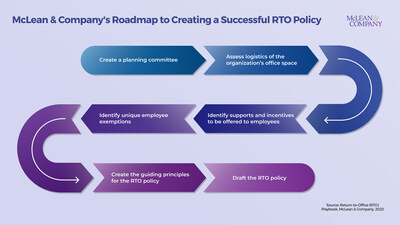Should You Return To A Company That Laid You Off? A Practical Guide

Table of Contents
Analyzing the Layoff Situation
Understanding the circumstances surrounding your layoff is crucial before considering a return. Ignoring the "why" could lead to repeating past mistakes or facing similar challenges down the line.
Reasons for the Layoff
The reason behind your layoff provides valuable context. Was it a company-wide restructuring due to economic downturn, a performance-based decision, or a department-specific downsizing?
- Company Financial Health: Examine the company's financial health at the time of the layoff. Was it struggling financially? News articles, financial reports, and even LinkedIn discussions can offer clues. A company facing insolvency might pose a higher risk of future layoffs, regardless of your performance.
- Layoff Scope: Research whether similar layoffs affected other employees with similar roles and experience levels. A widespread layoff suggests broader economic issues, while targeted layoffs might point to performance or departmental restructuring.
- Lingering Issues: Evaluate if the reasons for the layoff still exist. If the company restructured to improve profitability, are those improvements showing results? If the layoff was performance-related, have you addressed the issues that led to your dismissal?
Your Feelings and Experience
Your personal experience during the layoff is just as important as the objective reasons. Honesty with yourself about your emotional state is vital to making a sound decision.
- Emotional Impact: Did the layoff leave you feeling bitter, resentful, or undervalued? These feelings can significantly impact your work experience if you return.
- Severance Package: Was the severance package fair and reasonable, considering your tenure and contribution to the company? A generous package might indicate goodwill, while a meager one could signal a lack of respect.
- Layoff Process: Did the company handle the layoff process with professionalism and respect? Were you given adequate notice and support? A poorly managed layoff could foreshadow a similar experience in the future.
Evaluating the Job Offer
Once you understand the context of the layoff, thoroughly evaluate the new job offer. Don't let past emotions cloud your judgment.
The Role and Responsibilities
Carefully review the job description. Is it a lateral move, a promotion, or a demotion? Does it align with your career aspirations?
- Career Goals: Does the new role align with your long-term career aspirations? A lateral move might offer stability, but a promotion provides significant career advancement.
- Growth Potential: Are there clear opportunities for growth and advancement within the company? Consider the career trajectory within the organization and the possibility of future promotions.
- Workload: Are the responsibilities and workload manageable and realistic? Avoid repeating past situations that may have contributed to your previous layoff.
Compensation and Benefits
Compare the compensation package to your previous salary and benefits, as well as market rates for similar positions.
- Compensation: Carefully examine the salary, bonuses, and any performance-based incentives offered. Is the compensation competitive with the market rate for your skills and experience?
- Benefits: Review health insurance, retirement plans, paid time off, and other benefits. Ensure the benefits package is comparable to or better than what you received previously.
- Total Compensation: Calculate the total compensation package, including all benefits, to gain a complete understanding of the financial offer.
Company Culture and Management
Has anything changed since your layoff? Try to get insights from current employees, perhaps through networking or LinkedIn.
- Cultural Changes: Has the company culture improved since your layoff? Look for evidence of positive changes in employee reviews, company news, or through conversations with current employees.
- Professional Development: Are there opportunities for professional development, training, or mentorship within the company? This demonstrates a commitment to employee growth and advancement.
- Management Style: Is the management team more supportive and understanding now? Changes in management could signal a more positive work environment.
Considering the Long-Term Implications
Returning to your former employer has long-term implications for your career trajectory and professional reputation.
Job Security
Is the company in a more stable position now? Research industry trends and the company's recent financial performance.
- Financial Analysis: Analyze the company's recent financial reports and news to understand its current financial health and stability.
- Industry Trends: Evaluate the long-term prospects of the company and the industry in which it operates. A declining industry might pose increased risk of future layoffs.
- Future Layoff Risk: Assess the risk of future layoffs based on the company's financial health, industry outlook, and any recent restructuring efforts.
Impact on Your Professional Reputation
Returning to a previous employer after a layoff can be perceived positively or negatively. Consider how this decision might affect your future job prospects.
- Career Progression: Will returning enhance or hinder your career progression? A move to a competitor might be viewed more favorably by future employers.
- Employer Perception: How will potential future employers perceive your decision? Explain your reasoning clearly and positively during future job interviews.
- Networking: Consider the networking opportunities and professional relationships you may gain or lose by accepting the offer.
Conclusion
Returning to a company that laid you off is a multifaceted decision requiring careful consideration. Weigh the pros and cons of the job offer, analyzing the reasons for the initial layoff, the specifics of the new role, and the long-term implications for your career. Prioritize your professional well-being and career goals. Ultimately, the decision of whether or not to return to a former employer after being laid off is deeply personal. Make the choice that best aligns with your future aspirations and professional development. Take your time, weigh all the options, and make the choice that's right for you.

Featured Posts
-
 The Deeply Unfair Debate Newsoms Policy On Transgender Participation In Sports
Apr 26, 2025
The Deeply Unfair Debate Newsoms Policy On Transgender Participation In Sports
Apr 26, 2025 -
 Stock Market Today Dow Futures Rise Poised For Strong Week Finish
Apr 26, 2025
Stock Market Today Dow Futures Rise Poised For Strong Week Finish
Apr 26, 2025 -
 The Impact Of The Hollywood Actors And Writers Strike
Apr 26, 2025
The Impact Of The Hollywood Actors And Writers Strike
Apr 26, 2025 -
 Sanders Explains Why Son Shedeur Didnt Inherit His Famous Speed
Apr 26, 2025
Sanders Explains Why Son Shedeur Didnt Inherit His Famous Speed
Apr 26, 2025 -
 Harvard University A Conservative Professors Analysis And Proposals
Apr 26, 2025
Harvard University A Conservative Professors Analysis And Proposals
Apr 26, 2025
